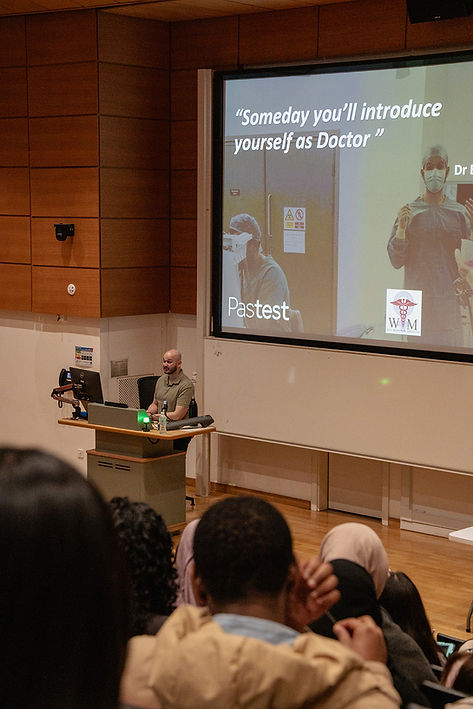
UCAT Score Required for Medicine
Understand what it takes to get a top UCAT score for medicine and how our UCAT prep resources can help you get there.
How universities in the UK use the UCAT
Each university uses the UCAT score in different ways when deciding who to offer places to on their medicine degree.
You can find detailed information about this on their websites, so make sure you carefully do your research before applying. If you’re unsure about anything or have questions, get in touch with them.
You’ll find out your UCAT result before the UCAS deadline, so you’ll have plenty of time to think about which universities to apply to. It’s important to use your UCAT score to make the right choices and avoid wasting time applying somewhere where your score might not be accepted.
You can find out more information about how universities use the UCAT on the official UCAT website.
What is a good UCAT score for medicine?
Scores above 2,100
A competitive score for many leading medical schools, including University College London (UCL) and King’s College London.
Scores from 1,950–2,100
A solid score that puts you in a good position for many medical schools, but additional strengths such as A-level grades and relevant work experience will be important.
What is a low UCAT score for medicine?
Scores below 1,900
This score is considered below average for most top medical schools, but there are still options available, especially if your application is strong in other areas.

What are UCAT percentiles and deciles?
Your UCAT percentile tells you how you performed on the test compared to other candidates.
The higher your percentile is, the better you perform. For example, if you’re in the 90th percentile, this means that you scored higher than 90% of test-takers. A top 1% UCAT score would put you in the 99th percentile.
Percentiles are converted into deciles, so the 90th percentile becomes the 9th UCAT decile, the 80th percentile becomes the 8th UCAT decile, and so on.
Why is a good UCAT score for medicine important?
While a good UCAT score alone does not guarantee you a place in medical school, it plays an important role in ensuring your application is considered by the university.
The UCAT is a screening tool for universities that helps them assess abilities and qualities such as problem-solving, decision-making and empathy – all essential for a career in medicine.
Alongside your grades, personal statement, and interview performance, your UCAT score helps universities build a complete picture of your suitability for medicine.
How can I improve my UCAT score?
Starting your practice early will help put you on track for a high UCAT score, placing you in the top deciles. Here’s what you can do to get there:
Get our FREE Q bank with 500 questions and start practicing today
This will help you to familiarise yourself with the different question types in the UCAT and allow you to answer more efficiently.
Take our free mock test and experience the real thing
This builds familiarity with the test questions and improves your time management skills. Once you’re ready, access our free mock test here and set yourself up for UCAT success.
Attend Dr. Bakhtar’s 2-day UCAT course
Combine the Q bank and mock test with our tiered UCAT courses to boost your efficiency, motivation and confidence!
Led by Dr. Bakhtar, who has helped thousands of students enter exciting and rewarding careers in medicine and dentistry since 2019, the course will help break down difficult concepts, empowering you to tackle even the most challenging UCAT questions with confidence.
During the interactive course, you’ll deep-dive into all four sections of the UCAT and master triaging – a time-saving technique that gives you the highest chance of success.

UCAT Score for Medicine FAQs
What is the lowest UCAT score?
Given that each section of the UCAT is scored on a scale of 300 to 900, the lowest possible UCAT score is 900.
Is 1950 a bad UCAT score?
A score of 1950 is considered a solid score that puts you in a good position for many medical schools, but additional strengths such as A-level grades and relevant work experience will be important.
Is 2000 a good UCAT score?
A score of 2000 is considered is a competitive score for many leading medical schools.
